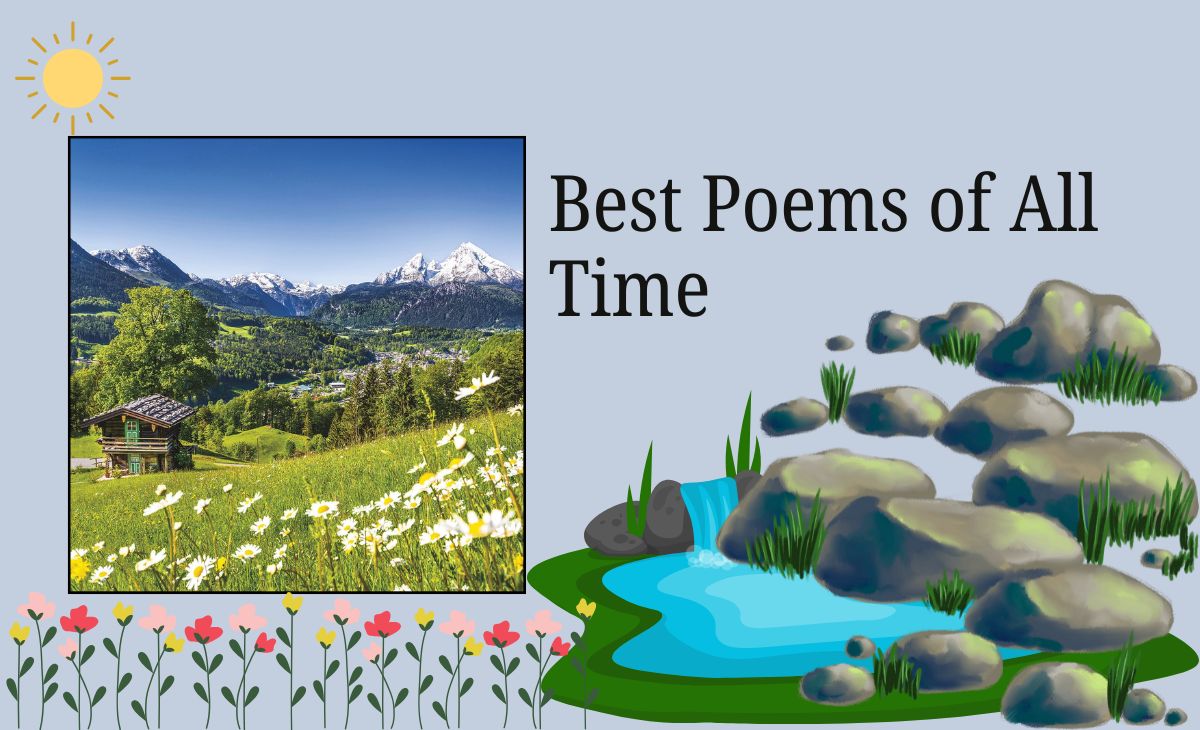Poetry has the unique power to capture the human experience in just a few carefully chosen words. From ancient epics to modern masterpieces, the greatest poems of all time continue to move readers across cultures and generations.
These timeless verses represent the pinnacle of literary achievement, each offering profound insights into love, loss, nature, and the human condition. Here are the 22 best poems ever written that have left an indelible mark on world literature.
1. “The Odyssey” (excerpt) – Homer
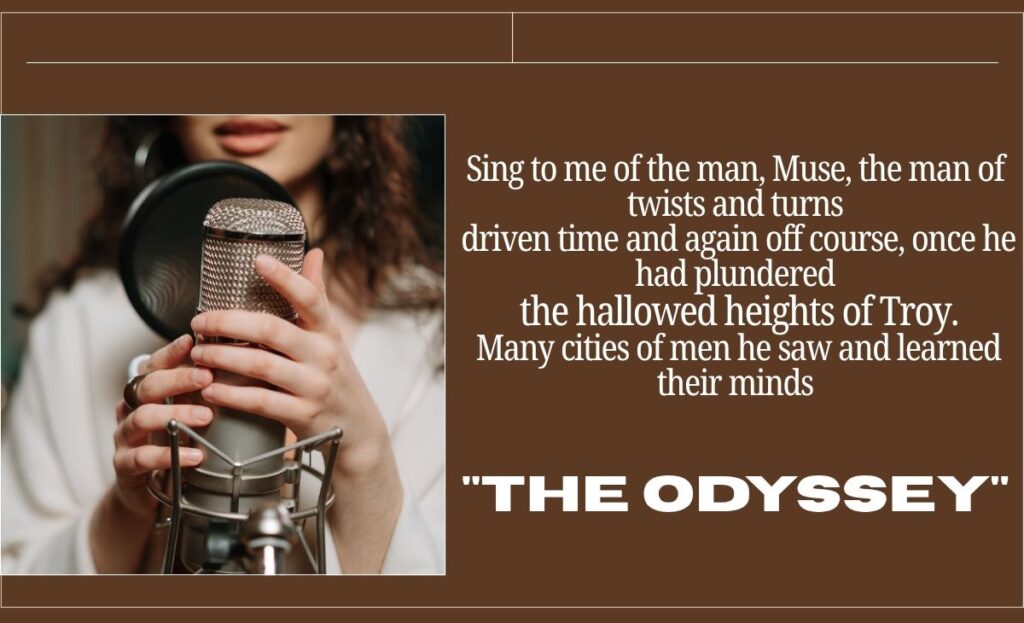
“Sing to me of the man, Muse, the man of twists and turns
driven time and again off course, once he had plundered
the hallowed heights of Troy.
Many cities of men he saw and learned their minds”
Homer’s epic poem follows Odysseus on his ten-year journey home from the Trojan War. This foundational work of Western literature combines adventure, mythology, and profound themes of perseverance and homecoming that continue to resonate today.
2. “The Aeneid” (excerpt) – Virgil
“I sing of arms and the man, he who, exiled by fate,
first came from the coast of Troy to Italy, and to
Lavinian shores—much buffeted he was on sea and land
by the gods’ will, on account of fierce Juno’s never-forgetting anger”
Virgil’s masterpiece tells the story of Aeneas founding Rome after Troy’s fall. This epic poem brilliantly weaves together destiny, duty, and sacrifice, establishing many conventions that would influence poetry for centuries.
3. “Quiet Night Thought” – Li Bai
“Bright moonlight before my bed
I think it is frost on the ground
Lifting my head I watch the bright moon
Lowering my head I dream of home”
This simple yet profound Chinese poem captures the universal feeling of homesickness with remarkable economy. Li Bai’s gentle imagery of moonlight transforms a moment of longing into something beautifully eternal.
4. “The Guest House” – Rumi
“This being human is a guest house.
Every morning a new arrival.
A joy, a depression, a meanness,
some momentary awareness comes as an unexpected visitor.”
Rumi’s mystical poetry offers wisdom about accepting all emotions as temporary visitors. This spiritual masterpiece teaches readers to welcome both joy and sorrow as essential parts of the human experience.
5. “Sonnet 18: Shall I compare thee to a summer’s day?” – William Shakespeare
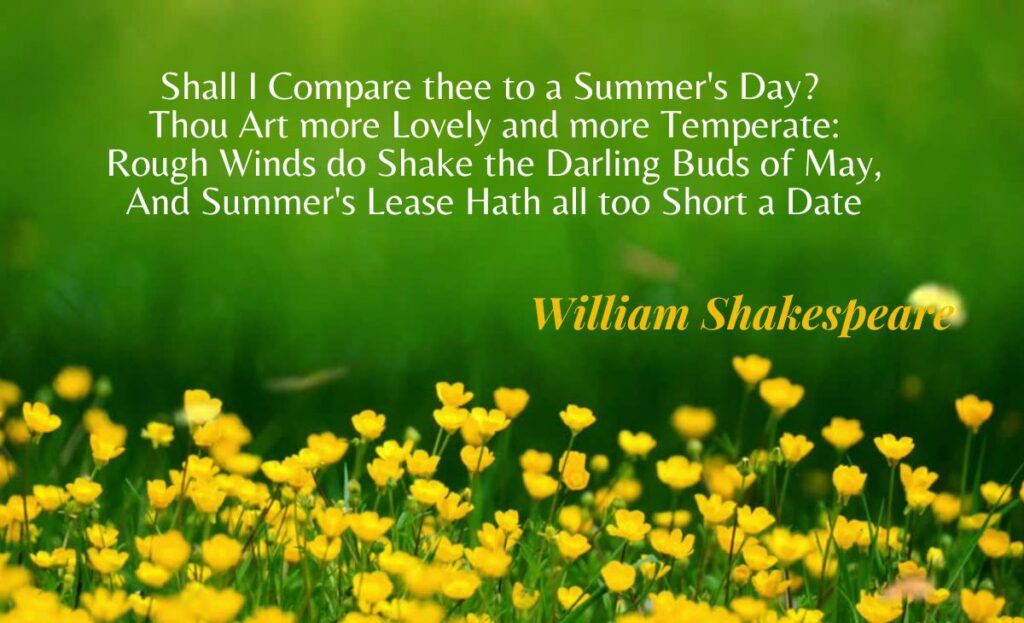
“Shall I compare thee to a summer’s day?
Thou art more lovely and more temperate:
Rough winds do shake the darling buds of May,
And summer’s lease hath all too short a date”
Perhaps the most famous love poem ever written, Shakespeare’s sonnet promises immortality through verse. The poet argues that his beloved’s beauty will live forever in these lines, making this one of the greatest poems about eternal love.
6. “Sonnet 130: My mistress’ eyes are nothing like the sun” – William Shakespeare
“My mistress’ eyes are nothing like the sun;
Coral is far more red than her lips’ red;
If snow be white, why then her breasts are dun;
If hairs be wires, black wires grow on her head.”
This revolutionary sonnet subverts traditional love poetry by describing the beloved honestly rather than through idealized comparisons. Shakespeare creates a more authentic and ultimately more powerful declaration of love.
7. “Holy Sonnet 10: Death Be Not Proud” – John Donne
“Death, be not proud, though some have called thee
Mighty and dreadful, for thou art not so;
For those whom thou think’st thou dost overthrow
Die not, poor Death, nor yet canst thou kill me.”
Donne’s metaphysical poem boldly confronts mortality by personifying and challenging Death itself. This spiritual masterpiece combines intellectual argument with deep faith to diminish death’s power over human consciousness.
8. “To His Coy Mistress” – Andrew Marvell
“Had we but world enough and time,
This coyness, lady, were no crime.
We would sit down, and think which way
To walk, and pass our long love’s day.”
Marvell’s carpe diem poem uses wit and urgency to argue for seizing love’s opportunities. This clever verse balances playful seduction with serious meditation on time’s passage, making it one of literature’s most effective persuasive poems.
9. “I Wandered Lonely as a Cloud” – William Wordsworth
“I wandered lonely as a cloud
That floats on high o’er vales and hills,
When all at once I saw a crowd,
A host, of golden daffodils”
Wordsworth’s nature poem captures a moment of natural beauty that provides lasting spiritual nourishment. This Romantic masterpiece demonstrates how encounters with nature can heal loneliness and provide enduring joy through memory.
10. “She Walks in Beauty” – Lord Byron
“She walks in beauty, like the night
Of cloudless climes and starry skies;
And all that’s best of dark and bright
Meet in her aspect and her eyes”
Byron’s lyrical poem celebrates feminine beauty through striking contrasts between light and dark. This elegant verse creates an almost musical quality that has made it one of the most beloved poems about beauty in English literature.
11. “Ode to a Nightingale” – John Keats
“My heart aches, and a drowsy numbness pains
My sense, as though of hemlock I had drunk,
Or emptied some dull opiate to the drains
One minute past, and Lethe-wards had sunk”
Keats explores the tension between earthly suffering and transcendent beauty through the nightingale’s song. This Romantic ode grapples with mortality, art’s permanence, and the desire to escape human limitations through aesthetic experience.
12. “The Tyger” – William Blake
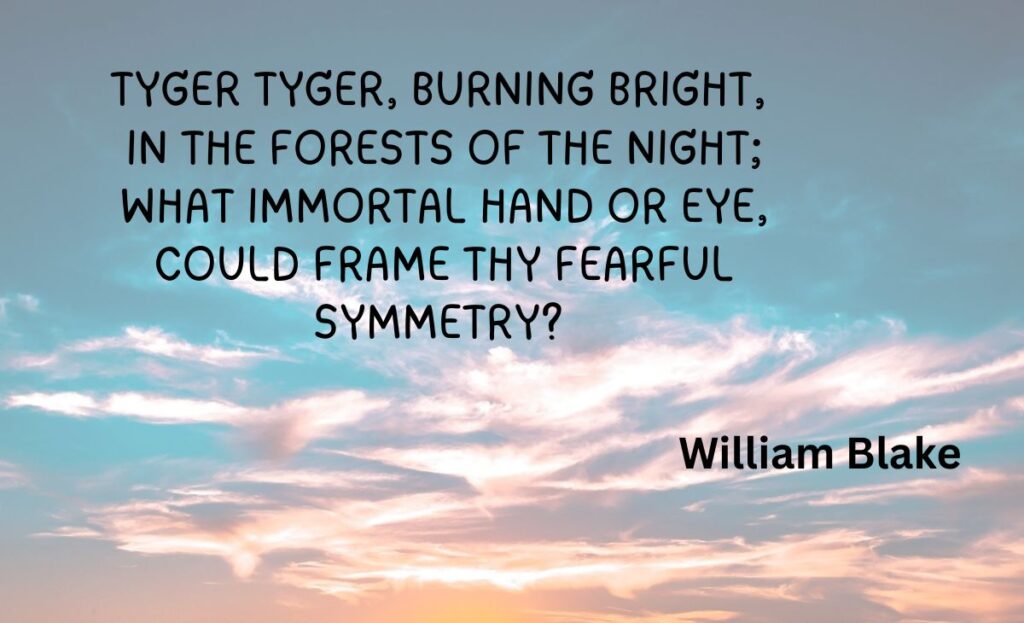
“Tyger Tyger, burning bright,
In the forests of the night;
What immortal hand or eye,
Could frame thy fearful symmetry?”
Blake’s mystical poem questions divine creation through the tiger’s fierce beauty. This philosophical masterpiece uses simple language to explore complex theological questions about good and evil in God’s creation.
13. “The Road Not Taken” – Robert Frost
“Two roads diverged in a yellow wood,
And sorry I could not travel both
And be one traveler, long I stood
And looked down one as far as I could”
Frost’s most famous poem explores life’s choices and their consequences. Often misunderstood as simply advocating nonconformity, this complex verse actually examines how we rationalize our decisions and create meaning from arbitrary choices.
14. “I Hear America Singing” – Walt Whitman
“I hear America singing, the varied carols I hear,
Those of mechanics, each one singing his as it should be blithe and strong,
The carpenter singing his as he measures his plank or beam,
The mason singing his as he makes ready for work, or leaves off work”
Whitman’s democratic poem celebrates the dignity of all American workers. This patriotic verse captures the nation’s diversity and energy while elevating ordinary labor to something noble and musical.
15. “Because I could not stop for Death” – Emily Dickinson
“Because I could not stop for Death –
He kindly stopped for me –
The Carriage held but just Ourselves –
And Immortality.”
Dickinson’s personification of Death as a courteous gentleman creates one of literature’s most original takes on mortality. This haunting poem transforms the fear of death into a peaceful journey toward eternity.
16. “The Love Song of J. Alfred Prufrock” – T.S. Eliot
“Let us go then, you and I,
When the evening is spread out against the sky
Like a patient etherized upon a table;
Let us go, through certain half-deserted streets”
Eliot’s modernist masterpiece captures modern alienation through Prufrock’s internal monologue. This revolutionary poem uses stream-of-consciousness and fragmented imagery to portray psychological paralysis in the modern world.
17. “Still I Rise” – Maya Angelou
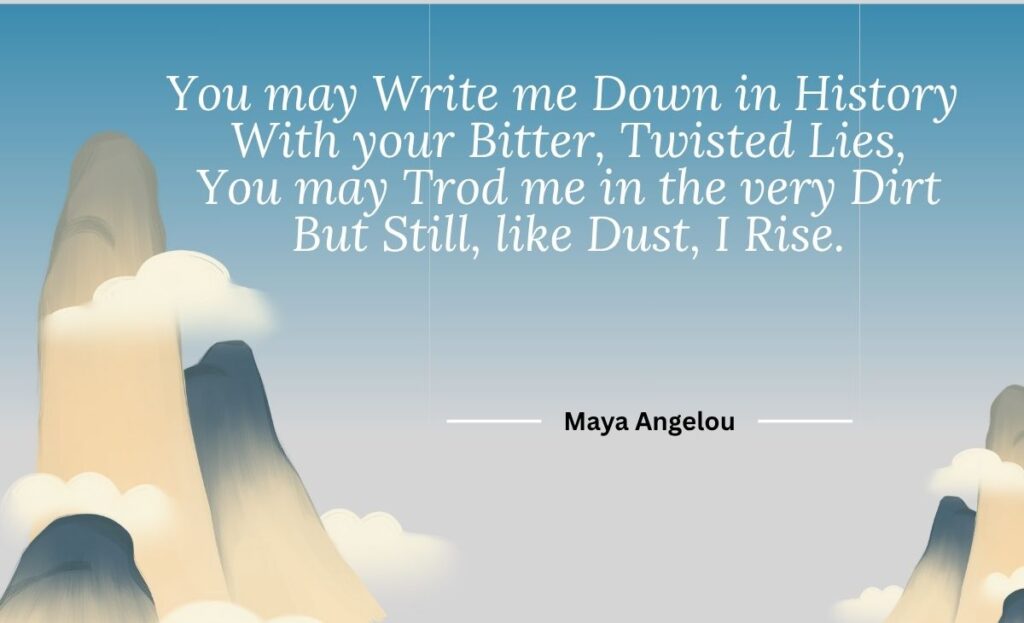
“You may write me down in history
With your bitter, twisted lies,
You may trod me in the very dirt
But still, like dust, I rise.”
Angelou’s powerful anthem of resilience speaks to overcoming oppression and discrimination. This inspirational poem combines personal strength with collective history, making it one of the most important poems about perseverance ever written.
18. “Do not go gentle into that good night” – Dylan Thomas
“Do not go gentle into that good night,
Old age should burn and rave at close of day;
Rage, rage against the dying of the light.
Though wise men at their end know dark is right”
Thomas’s villanelle passionately argues against passive acceptance of death. Written for his dying father, this emotional masterpiece uses repetitive form to create an almost hypnotic plea for fighting life’s end with dignity and fire.
19. “The New Colossus” – Emma Lazarus
“Not like the brazen giant of Greek fame,
With conquering limbs astride from land to land;
Here at our sea-washed, sunset gates shall stand
A mighty woman with a torch, whose flame”
Lazarus’s sonnet redefines American greatness through compassion rather than conquest. Inscribed on the Statue of Liberty, this patriotic poem articulates America’s role as a refuge for the oppressed and remains relevant to immigration debates today.
20. “If—” – Rudyard Kipling
“If you can keep your head when all about you
Are losing theirs and blaming it on you,
If you can trust yourself when all men doubt you,
But make allowance for their doubting too”
Kipling’s didactic poem offers a blueprint for honorable manhood through various challenging scenarios. This inspirational verse has become one of the most quoted poems about character and personal integrity in English literature.
21. “Phenomenal Woman” – Maya Angelou
“Pretty women wonder where my secret lies.
I’m not cute or built to suit a fashion model’s size
But when I start to tell them,
They think I’m telling lies.”
Angelou’s celebration of feminine power rejects conventional beauty standards in favor of inner confidence. This empowering poem became an anthem for women’s self-acceptance and demonstrates how attitude and self-assurance create true attractiveness.
22. “Invictus” – William Ernest Henley
“Out of the night that covers me,
Black as the pit from pole to pole,
I thank whatever gods may be
For my unconquerable soul.”
Henley’s stoic masterpiece declares the human spirit’s triumph over adversity. Written while the poet faced amputation, this inspirational poem has provided strength to countless readers, including Nelson Mandela during his imprisonment.
Conclusion
These 22 best poems of all time represent humanity’s greatest achievements in verse, spanning thousands of years and countless cultures. From Homer’s epic adventures to Angelou’s modern anthems of resilience, these timeless masterpieces continue to speak to readers because they capture universal truths about love, loss, beauty, and the human spirit.
Whether you’re seeking comfort, inspiration, or simply the pleasure of beautiful language, these greatest poems ever written offer something profound for every reader. Start with one that speaks to your current situation, and let these immortal verses enrich your understanding of both literature and life itself.

I’m Chloe Eden, the heart behind ReverbLove.com. I Share Soulful Poems that touch Emotions, Inspire Hearts, and Celebrate Love. Words are My Art, and Poetry is My Passion.
